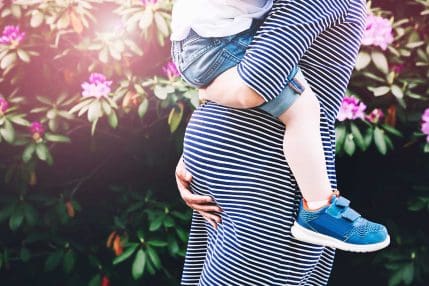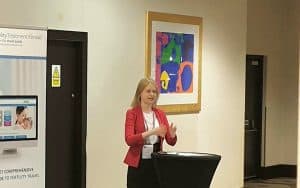9 April 2025
Developments in the international surrogacy space continue to evolve rapidly. There have been multiple changes to international surrogacy law and policy in recent months. These changes have taken place in Argentina, Italy, the US and Greece, making it more essential than ever to keep abreast of developments in fertility treatment and international surrogacy and consult an expert international surrogacy lawyer.
Clamp Down on Surrogacy in Argentina
In 2017, a legal ruling in the Argentine city of Buenos Aires enabled intended parents of babies born through surrogacy to be automatically registered as the parents provided certain criteria were met (there being an absence of any court process and no legislation regulating surrogacy). This enabled intended parents to be named on their surrogate born baby’s Argentine birth certificate regardless of whether they were a heterosexual, gay or cohabiting couple or single and with no reference to the surrogate. This generated growing interest in surrogacy, lots of activity by foreign agents and the development of surrogacy programmes designed to attract foreign intended parents.
By the start of 2024, concerns were rising in Argentina about surrogacy practices as Buenos Aires and other large Argentine cities were seeing a significant increase in demand for surrogacy by foreign intended parents. In April 2024, Buenos Aires authorities paused the issue of birth certificates for babies born through surrogacy, creating legal uncertainty and leaving foreign intended parents with undocumented newborn babies and practical difficulties accessing medical care. That same month, concerns heightened when a surrogacy scandal reportedly came to light in the Argentinian city of Cordoba involving 14 women acting as surrogates in the absence of surrogacy legislation. This triggered an investigation into human trafficking. Two Cordoba IVF clinics were reportedly investigated. One Cordoba surrogate was reportedly found in poor postpartum health suffering from high blood pressure, an infection, bleeding and more.
As a result, in June 2024 a new policy was implemented stating that a surrogate born child could not leave the Argentine city where they were born until they had obtained an Argentine birth certificate and local passport. It also mandated that the Argentine birth certificate did not confer a legal relationship. It was further mandated that for surrogate births between 4 June and 22 July 2024, only the surrogate should be recorded on the birth certificate by the Civil Registry. Then on 22 July 2024, the Civil Registry announced it would no longer register surrogate births without prior court approval.
Fast forward to October 2024, which saw news reports that prosecutors in Argentina had uncovered a “criminal enterprise” charging foreign couples about $50,000.00 for a baby born through an Argentinian surrogacy arrangement. It was reported that an international surrogacy ring had exploited vulnerable women, denying them payments if they miscarried, and “commercialised” babies. It was further reported that they paid economically impoverished women $10,000.00, with a bonus of $1,000.00 – $2,000.00 if they delivered by caesarean section, but that the women received only minimal expenses if the pregnancy did not continue. Police reportedly raided four fertility centres in Buenos Aires and two in Rosario, seven notary offices, and three law firms, seizing medical and payment records with ensuing investigations into human trafficking crimes and commercialisation of children.
Argentinian prosecutors went on to report that “Those under investigation carried out a criminal enterprise dedicated to the recruitment of women, many of them vulnerable and in conditions of economic deprivation, with the aim of subjecting them to exploitation comparable to reduction to servitude”. It was further reported that this Argentinian surrogacy investigation had commenced in January 2024 when a 58-year-old German woman took a three-month-old baby in “very poor health” to a hospital in Bonn for urgent medical treatment. It was discovered that the baby was born via an Argentinian surrogacy arrangement when the mother produced a birth certificate issued by the Buenos Aires City Civil Registry and an Argentine passport as proof of her relationship to the child. German police reportedly determined that the woman was not fit to care for the baby, who went on to be placed in foster care. Thereafter, it was reported that Argentinian prosecutors were investigating similar cases dating back to 2018 and had identified 49 other cases.
Then in November 2024 came news that the Argentinian Supreme Court had issued a legal ruling rejecting a gay male married couple’s application for a new birth certificate that named them both as their surrogate born baby’s parents to replace the original as they had not obtained prior legal authorization for the surrogacy. The legal ruling went on to make clear that parties could not enter into surrogacy contracts either to change parental ties. The Argentinian Supreme Court also urged Argentinian lawmakers to “correct the lack of regulation” in relation to surrogacy and stated that surrogacy is a practice contrary to the law.
As such, surrogacy in Argentina is fraught with difficulties and following the Argentinian Supreme Court ruling in November 2024 it is declared to be contrary to the law.
Surrogacy Ban Extended in Italy
Under new law enacted in early December 2024, Italians are now prohibited from undertaking surrogacy (both domestically and internationally) and face a prison term of up to 2 years and and fines of between €600,000 and €1m (£500,000 and £840,000) for breaching this restrictive legislation. This measure was brought in by Prime Minister Giorgia Meloni’s far-right government which asserted it was required to “fill a regulatory gap to also prevent this inhumane practice in procreative tourism” and “protect women and their dignity” alongside other socially conservative policies aimed at promoting traditional family values. Leading up to the introduction of this legislation, it was estimated that 250 Italian couples a year travelled abroad to have surrogate children.
During her election campaign, Giorgia Meloni spoke out against LGBT couples undertaking surrogacy and campaigned “yes to the natural family, no to the LGBT lobby”. She also campaigned that children should only be brought up by a man and a woman. In 2023, her far-right government directed Milan’s city council to stop registering the children of same-sex parents. Concerningly, Meloni has described surrogacy as “a symbol of an abominable society that confuses desire with rights and replaces God with money”. This restrictive legislation has led to claims by opponents that it is part of a concerted plan to discriminate against the reproductive rights of LGBTQ+ couples, who are are unable to adopt or undergo IVF in Italy.
All in all, Italy has rowed back even further on reproductive rights and freedoms making it harder for Italians to build families and access assisted reproductive technologies and surrogacy in the face of global declining fertility levels.
US Surrogacy, Birthright Citizenship & LGBT+ Rights
President Trump issued an Executive Order on 20 January 2025 which declared that children born in the US to non US citizen parents would no longer automatically be entitled to US citizenship. Trump’s Executive Order was, however, suspended by a US Federal Judge on 6 February 2025 pending multiple legal challenges because birthright citizenship in the USA is a constitutional right, set out in the 14th amendment to the US Constitution, and because it cannot simply be changed by a Presidential Executive Order.
If this Executive Order is subsequently enacted (which has not yet been determined), it may have implications for babies born through surrogacy in the US to foreign intended parents (although this is not yet clear either). In the event that a surrogate born baby in the US to foreign intended parents is denied US citizenship, then intended parents can still look to confer their own citizenship on their surrogate born child and obtain a passport from their home country with which to enable their child to travel home (subject to their home country’s own laws on citizenship, nationality and immigration).
President Trump issued a further Executive Order on 20 January 2025 entitled “Defending Women From Gender Ideology And Extremism And Restoring Biological Truth To The Federal Government”. It went on to state that the Trump “Administration will defend women’s rights and protect freedom of conscience by using clear and accurate language and policies that recognize women are biologically female, and men are biologically male”. As such, it is now the policy of the US to only recognise two sexes, male and female. This is widely seen as an attack on transgender and LGBT+ rights. It went on to state that “gender identity reflects a fully internal and subjective sense of self, disconnected from biological reality and sex and existing on an infinite continuum, that does not provide a meaningful basis for identification and cannot be recognized as a replacement for sex”. Of further concern, this Executive Order went on to state “The Secretaries of State and Homeland Security, and the Director of the Office of Personnel Management, shall implement changes to require that government-issued identification documents, including passports, visas, and Global Entry cards, accurately reflect the holder’s sex”.
As such, law and policy in the US continues to evolve rapidly, and it remains to be seen how this will play out in terms of birthright citizenship, surrogacy and LGBT+ rights (as well as in relation to IVF, access to assisted reproductive technologies and abortion), making it very important to navigate family building and reproductive rights with care and obtain expert legal advice and assistance moving forward.
Government Plans to Restrict Surrogacy In Greece
Greece legally permits regulated altruistic surrogacy arrangements with overall surrogacy costs of €70,000.00 – €100,000.00 for a child. Surrogacy contracts are valid and enforceable if there has been been pre-conception authorisation by the Greek Court.
However, lawmakers in Greece announced plans in April 2025 to ban gay male couples and single men from conceiving children through surrogacy. The Greek government plans to submit proposed legislation to parliament to clarify and restrict surrogacy only to women who need medically-assisted reproduction due to an “inability to carry a pregnancy” and to prohibit men from undertaking surrogacy. These legislative plans follow growing fears that Greece risks becoming an international hub for human trafficking if legislation is not imposed.The Greek government claims there has been an increase in foreign women registering as temporary residents in Greece to become surrogates, leaving them open to exploitation.
This follows news reports in August 2023 about a surrogacy scandal on the Greek island of Crete. Greek authorities reportedly made 8 arrests in a nationwide operation that focused on a fertility clinic on the Greek island of Crete. Charges allegedly included human trafficking, illegal adoption of minors, buying and selling of genetic material, falsification of medical file data, fraud, forgery and false medical certificates intended for judicial use. There were further reports that vulnerable eastern European women were recruited as egg donors and surrogates and that 30 pregnant women were found in squalid living conditions.
Prior to this in December 2022, Greek police arrested suspects and shut down an international human trafficking ring on the island of Rhodes that was illegally transferring foreign nationals to and from Greece. Before this in 2019, news broke that Greek authorities had shut down a €500,000 international baby-smuggling network accused of selling and illegally adopting babies born to vulnerable Bulgarian women who had been transported to Greece to give birth in private hospitals. The same group was also accused of transporting women to Greece from Bulgaria, Georgia and Russia where they underwent fertility treatment and sold their eggs.
Accordingly, evolving Greek policy make it important to stay up to date with surrogacy law and practice.
International Surrogacy Law
Overall, rapid developments in global politics, laws and policies make it critical for intended parents to proactively manage the associated legal issues. Prospective parents must be vigilant about the risks and ensure they have a viable legal and practical action plan before embarking upon an international surrogacy journey.
Need an international surrogacy lawyer? We provide a range of specialist legal strategies and solutions to assist with the management of family building using assisted reproduction technologies, surrogacy law, legal parentage, parental responsibility, birth certificates and the upbringing of surrogate born children. If you are considering, or are part way through, a surrogacy arrangement in the UK or internationally and you would like to discuss your situation or you require specialist fertility, surrogacy and family law assistance please contact Louisa Ghevaert by email louisa@louisaghevaertassociates.co.uk or by telephone+44 (0)20 7965 8399.
Images: Louisa Ghevaert CEO & Founder Louisa Ghevaert Associates
To find out more about Louisa Ghevaert click here.







